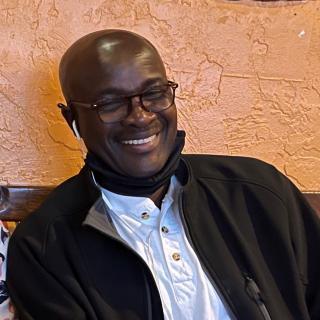This presentation is a historical investigation of three former estates or slave plantations – Belmont Estate, River Antoine Estate and Leapers’ Hill – also known as the graveyard for African slaves and the native people of Grenada. These sites or Lieux de Mémoire have largely been repurposed for tourism, made beautiful leisure places and commercial locations disrupting their capacity to powerfully serve as historical spaces for remembrance or collective memory, spiritual connections with the ancestral past, and foci of emotional healing. The repurposing of these establishments into needs that are far removed from their initial historical meaning is by design and therefore continues to rob Grenadians from engaging such delicate matters as reparation and also healing from the painful ravages of the ills of slavery.
The very presentation argues that reclaiming the sacredness of these places, as Lieux de Mémoire, is key to Grenada’s effort in preserving its history, in protecting its ancestral heritage, and in safeguarding these locations for they hold the potential as healing grounds of psychological scars within the historical trauma. By fostering practices such as drumming, chanting, and other expressive arts at these sites, Grenadians and other recipients of slavery can transform these Lieux de Mémoire from symbols of degradation into spaces of resilience and healing.
Our search to better understand the shift of focus and use of these Lieux de Mémoire helps us to further explore how an interdisciplinary approach to Black historiographies, slavery, forced migrations, and collective memory can contribute to the preservation and revitalization of these sacred places. The restoration of these ‘sites of memories’ to their primordial meaning and value will keep an important part of Grenadian history visible. This work is also an effort to restore, preserve and protect the meaning of those critical damaged historical points of reference as focal points for healing rather than mere cheapened commercial ventures.
The nature of our research concludes and suggests that these Lieux de Mémoire be respected, protected, and ultimately kept as important centers for reparative practices and cultural remembrance.
Bio:
George Kintiba is a Lecturer and a Coordinator of a Certificate in African Studies in the African American Studies Department at the University of Maryland, College Park. His research, writing, and teaching are focused on Africa and African Diaspora, with a particular interest on memory and heritage of slavery, forced migrations, religion-race-slavery, pre-colonial and post-colonial Africa, independence movements, African Diaspora, and Blacks in world politics.
George was a visiting Adjunct-professor in the History Departments at Howard University and Virginia Commonwealth University. He is an active member of the American Historical Association and Association of African Historians. He has published critical and insightful articles on African Empires of Western Sudan and West Central Africa in the International Journal of Humanities and Social Sciences. He has contributed to a book chapter entitled Marcus Mosiah Garvey: The Man and his Philosophy in Early Black Thinkers in the Diaspora and their Conceptualizations of Africa. George is currently completing a book on Catholicism and the Kingdom of Kongo: Early Religious Resistance Movements. He is also engaging in an Oral History Project in Prince George County, Maryland.
George holds a M.A. (1996) in History and Religions (Institut Saint Eugene de Mazenod affiliated to Urbaniana University (Rome), a M.A. (2009) in History and Religious Studies and Ph.D. (2014) in History from Howard University, where he was trained in the questions of slavery, race, religion, colonialism, and Blacks in world politics.
Please register for the Zoom link: https://go.umd.edu/Kintiba25



